|
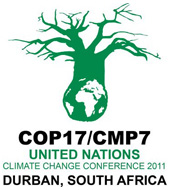 The United Nations Climate Change Conference, Durban 2011, will bring together representatives of the world's governments, international organizations and civil society. The discussions will seek to advance, the implementation of the Convention and the Kyoto Protocol, as well as the Bali Action Plan, agreed at COP 13 in 2007, and the Cancun Agreements, reached at COP 16 last December. The United Nations Climate Change Conference, Durban 2011, will bring together representatives of the world's governments, international organizations and civil society. The discussions will seek to advance, the implementation of the Convention and the Kyoto Protocol, as well as the Bali Action Plan, agreed at COP 13 in 2007, and the Cancun Agreements, reached at COP 16 last December.
Civil society participants will include trade unions, business associations, faith groups, environmental organizations, research institutes, etc.
Climate Action Network International, with almost 600 member organizations in countries around the world publishes an on line and paper daily bulletin called ECO during negotiations. CANET has participated in climate negotiations since the United Nations Framework on Climate Change was first negotiated, and pursues common program and policy goals during negotiations.
The Durban Conference includes sessions of :
- The Conference of the Parties (COP),
- The Conference of the Parties serving as the Meeting of the Parties to the Kyoto Protocol (CMP),
- The Subsidiary Body for Implementation (SBI),
- The Subsidiary Body for Scientific and Technological Advice (SBSTA),
- The Ad Hoc Working Group on Further Commitments for Annex I Parties under the Kyoto Protocol (AWG-KP)
- The Ad Hoc Working Group on Long-term Cooperative Action under the Convention (AWG-LCA)
The Conference will be hosted by the Government of South Africa and will take place at the International Convention Centre (ICC) & Durban Exhibition Centre (DEC).
Manitoba Wildlands will be providing selected and recommended links for news, reports, and analysis regarding the UN Durban Climate Summit November-December 2011. Media releases and clips will be listed by: Pre-Conference, During-Conference, and Post-Conference. Use this menu to quickly navigate the links listing below:
Websites:
- November 27, 2011, UNFCCC Receives Observer Submissions on Bali Action Plan, IISD
- November 22, 2011, UNFCCC Publishes Ten Submissions under the Bali Action Plan, IISD
- November 18, 2011 IPCC Releases Summary of Special Report on Disasters, IISD
- November 17, 2011, UNFCCC Publishes Information on Support for Observation and Monitoring Networks, IISD
- November 16, 2011, UNFCCC Publishes Annual Compilation and Accounting Report of Annex B Parties, IISD
- November 16, 2011, UNFCCC Publishes Greenhouse Gas Inventory Data for 1990-2009, IISD
- November 16, 2011, UNFCCC Publishes Report on Response Measures Forum, IISD
- November 16, 2011, UNFCCC Releases Information on Ecosystem-based Approaches to Adaptation, IISD
- November 4, 2011, IPCC Report Adds to Studies Tying Climate Change to Extreme Weather, WRIInsights
- November 4, 2011, UNFCCC Publishes Report on Technical Review of GHG Inventories, IISD
- After Durban: Risk of delay in raising ambition lowers chances for 2°C, while heading for 3.5°C
- Corporations, Climate and the United Nations: How Big Business has Seized Control of Global Climate Negotiations, Polaris Institute
- Durban Climate Change Conference
- October 2011, Kairos Policy Briefing Paper
- November 2, 2011, Burning trees for energy puts Canadian forests and climate at risk, Greenpeace
- November 21, 2011, WMO GHG Bulletin Highlights New High of Atmospheric Greenhouse Gases, IISD
- November 23, 2011, Who's holding us back?, Greenpeace
- November 25, 2011, Bridging the Emissions Gap to Meet 2-Degree Target Doable
- November 29, 2011, Peddling Greenhouse Gases, Canadian Centre for Policy Alternatives
- December 5, 2011, FAO Report Documents Impacts of Climate on Wildlife, IISD
- December 14, 2011, December 14, 2011, 'Canada Should Be Shunned for Kyoto Ignorance', Spiegel Online
- December 14, 2011, Justin Trudeau hurls obscenity at Peter Kent in Commons, Toronto Star
- December 14, 2011, Durban dust-up spurs Justin Trudeau to swear at Environment Minister, The Globe and Mail
- December 13, 2011, Canada's Kyoto math doesn't add up, The Pembina Institute
- December 13, 2011, Canada condemned at home and abroad for pulling out of Kyoto treaty, The Guardian
- December 13, 2011, Canada goes tabloid, The Guardian
- December 13, 2011, Canada breaks Kyoto commitment - Citizens, cities and provinces must continue to lead on solutions to climate change, David Suzuki Foundation
- December 13, 2011, Economic Shortsightedness of Pulling Out of the Kyoto Protocol, Canadian Youth Delegation
- December 13, 2011, China, Japan say Canada's Kyoto withdrawal "regrettable", Reuters
- December 13, 2011, Canada formally abandons Kyoto Protocol on climate change, The Globe and Mail
- December 13, 2011, Canada to pull out of Kyoto protocol, ABC News
- December 13, 2011, May accuses Harper of breaking law over Kyoto, CBC News
- December 12, 2011, Canada formally pulls out of Kyoto Protocol on climate change, The Washington Post
- December 12, 2011, Climate summit was a pathetic exercise in deceit, The Globe and Mail
- December 12, 2011, Canada MIA at Durban, Huffington Post
- December 12, 2011, Agreement for New Global Treaty to Reduce Emissions, Nation of Change
- December 12, 2011, Canada to pull out of Kyoto protocol, Reuters
- December 12, 2011, Canada pulls out of Kyoto Protocol, CBC News
- December 12, 2011, UN climate deal hailed as 'important advance', Aljazeera
- December 11, 2011, Do Not Mourn the Demise of Durban, Huffington Post
- December 11, 2011, COP 17 Concludes with Adoption of the Durban Platform, IISD
- December 11, 2011, U.N. climate talks' real-world outcome will be determined in Asia, The Washington Post
- December 11, 2011, Hope at last at the Durban conference on climate change, The Guardian
- December 11, 2011, Durban talks: how Connie Hedegaard got countries to agree on climate deal, The Guardian
- December 10, 2011, Hope fades for meaningful deal at Durban climate talks, Deutsche Welle
- December 10, 2011, Crisis Time in Durban, Nation of Change
- November 28, 2011, Challenging climate apartheid, New Internationlist blog
- December 10, 2011, Kent defends himself against India's scorn at marathon climate talks, The Globe and Mail
- December 10, 2011, Hope fades for meaningful deal at Durban climate talks, Deutsche Welle
- December 10, 2011, Climate talks: Jayanthi Natarajan applauded for stirring speech in Durban, The Times of India
- December 8, 2011, Canada wants new climate deal by 2015: Kent, Canada.com
- December 8, 2011, Will Durban Climate Talks Leave us on the Wrong Side of History?, Huffington Post
- December 8, 2011, Canada wants new climate deal by 2015: Environment minister, The Vancouver Sun
- December 8, 2011, Citizen Pressure Making an Impact in Durban, Common Dreams
- December 8, 2011, US College Student Shames US Climate Delegation in Durban, Common Dreams
- December 7, 2011, Food security has jumped up the agenda at Durban climate conference, Ecologist
- December 7, 2011, Marching off the Cliff, Nation of Change
- December 7, 2011, Listen to the People, Not the Polluters, Common Dreams
- December 7, 2011, Low profile in Durban relegates Canada to margins of climate debate, The Globe and Mail
- December 7, 2011, Press Release: CANADIAN YOUTH EJECTED FROM COP17, Canadian Youth Delegation
- December 6, 2011, Ban Ki-Moon, U.N. Chief, Doubts Climate Deal , Huffington Post
- December 6, 2011, Durban climate talks deadlocked as ministers haggle, Canada.com
- December 6, 2011, World 'Heading for 3.5 C Warming': Study, Common Dreams
- December 6, 2011, Kyoto Protocol on Life Support, Common Dreams
- December 6, 2011, California backs EU plan for "dirty fuel" label, Reuters
- December 6, 2011, Sweden, UK and Germany Top Climate Protectors, Inter Press Service
- December 5, 2011, Global Warming Fight Threatened by Debt Crisis as Kyoto Fades, Bloomberg Businessweek
- December 5, 2011, Canada will not renew Kyoto commitment, despite latest Chinese offer, CJOB
- December 5, 2011, Carbon Dioxide Emissions Break Growth Records, Common Dreams
- December 5, 2011, The Most Important News Story of the Day/Millennium, Common Dreams
- December 4, 2011, Climate talks bust-up feared despite dire warnings, AFP
- December 4, 2011, Marching for 100 Percent Change, Nation of Change
- December 3, 2011, Durban Oceans Day Discusses Marine Biodiversity Issues, IISD
- December 3, 2011 Canada's anti-Kyoto stance sours climate-change discussions in Durban, The Vancouver Sun
- December 3, 2011, Durban talks progress as hosts urge Canada not to bully, The Gazette
- December 2, 2011, Letter From Durban, Huffington Post
- December 2, 2011, African countries press developed world to come to climate deal, The Globe and Mail
- December 1, 2011, From Cairo to the Cape, climate change begins to take hold of Africa, The Guardian
- December 1, 2011, UN climate talks see 'delayer countries' throw away the 2C goal, The Guardian
- November 30, 2011, Durban: The early skirmishes, BBC News
- November 30, 2011, Archbishop Tutu challenges Canada to stop protecting big oil, TckTckTck
- November 2011, Central American Countries Adopt Common Position for COP 17, IISD
- November 30, 2011, Kyoto pullout by Canada would hurt UN talks: African nations, AFP
- November 27, 2011, Canada to pull out of Kyoto Protocol next month, CTV News
- November 27, 2011, Peter Kent to Push "Ethical Oil" in South Africa, The Mark News
- November 28, 2011, Amid dire warming warnings, Canada is MIA, The Globe and Mail
- November 22, 2011, 'New release' of climate emails, BBC News
- November 24, 2011, Oxfam Canada urges government to reduce emissions, place women at heart of Green Fund, during UN Climate Conference, Oxfam Canada
- November 18, 2011, UNFCCC Upgrades CDM Methodologies Page, IISD
- November 23, 2011, UN Security Council Debates Climate Change as Threat to Peace and Security, IISD
- November 24, 2011, Vulnerable Countries Consider 'Occupying' Durban Climate Talks, Common Dreams
- November 23, 2011, UN Chief Slams Rich Nations' Plans to Delay Climate Change Treaty, Common Dreams
- November 21, 2011, Rich Nations 'Give Up' on New Climate Treaty Until 2020, Common Dreams
- November 14, 2011, UN Secretary-General Addresses Second Climate Vulnerable Forum, IISD
- November 18, 2011, Extreme Weather Set to Worsen With Climate Change: IPCC, Common Dreams
- October 24, 2011, Durban May Be Last Chance to Stabilize Climate Under Two Degrees, Common Dreams
- November 14, 2011, UN-HABITAT Supports Youth Caravan to Durban, IISD
- November 10, 2011, UNFCCC Secretariat Publishes Canada's Fifth National Communication, IISD
- November 8, 2011, John H. Adams: Tar Sands Protest a Historical Turning Point, TckTckTck
- November 8, 2011 UN chief urges youth to build a movement against climate change, TckTckTck
- November 9, 2011 Year of Extremes Underscores Need for Better Preparedness, Emissions Reductions, Common Dreams
- November 9, 2011, World headed for irreversible climate change in five years, IEA warns, The Guardian
- November 9, 2011, Time for climate change fix running out, IEA warns, CBC News
- November 4, 2011, BASIC Ministers Outline Expectations Ahead of Durban, IISD
- November 1, 2011, Kyoto Protocol Committee Considers Compliance of Ukraine, Lithuania, Canada and Italy, IISD
- October 2011, The Fight for the First Climate Change Treaty, Solutions
- October 26, 2011, Fighting for a climate change treaty, Aljazeera
- October 20, 2011: Big Businesses' Call for Climate Action: Strong Treaty, More Aid, National Geographic
- October 19, 2011 Investors Worth $20 Trillion Urge Legally-Binding Climate Treaty, Environment News Service
- October 13, 2011: UN may leave Canada behind at Durban negotiations, iPolictics
- October 10, 2011: EU Adopts Negotiating Position for Durban, IISD
- October 5, 2011, Europe can save the Kyoto Protocol, EurActiv
- September 29, 2011: Tcktcktck event reflects on prospects for Durban, Rio+20
- August 11, 2011: African Group of Negotiators Prepares Position for COP17/CMP7, IISD
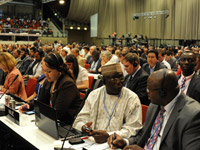 Climate negotiations in Durban, South Africa went almost 24 hours overtime and surprisingly ended with several important decisions centred on adaption, green climate fund, technology and strategies to support developing countries, being adopted.
Climate negotiations in Durban, South Africa went almost 24 hours overtime and surprisingly ended with several important decisions centred on adaption, green climate fund, technology and strategies to support developing countries, being adopted.
The conference included the seventeenth session of the Conference of the Parties (COP 17) to the UN Framework Convention on Climate Change (UNFCCC) and the seventh meeting of the Conference of the Parties serving as the Meeting of Parties to the Kyoto Protocol (CMP 7).
The United Nations Framework Convention on Climate Change (UNFCCC) sets out a framework for action aimed at stabilizing atmospheric concentrations of greenhouse gases (GHG) to avoid man-made global warming. It was adopted in 1992 and came into force in 1994. With 195 parties to the agreement, the UNFCCC encompasses virtually every country in the world, including Canada and the United States (US).
The Kyoto Protocol, a sub-agreement under the UNFCC was signed in 1997 at COP 10 in Kyoto Japan, and came into force in 2005. It presently has 193 parties, including Canada but not the US.
The Kyoto Protocol recognizes a "common but differentiated responsibilities" amongst the 191 national signatories to reduce greenhouse gas (GHG) emissions. Industrial nations - who are both wealthier and responsible for the bulk of the world's historic GHG emissions - are required to reduce their emissions by an overall average of 5.2% below 1990 levels during the first commitment period between 2008 and 2012. The Kyoto Protocol intended that a second commitment period and new international framework be negotiated and ratified by the end of 2012.
Governments decided in Durban to adopt a new universal legal agreement on climate change that will apply to all countries no later than 2015. A new group called the Ad Hoc Working Group on the Durban Platform for Enhanced Action is tasked with implementing this goal. Although the details remain to be worked out, 38 industrialized nations, largely from Europe, also agreed to further targets and reporting under a second Kyoto Protocol commitment period beginning on January 1, 2013 and ending in 2017.
"I salute the countries who made this agreement. They have all laid aside some cherished objectives of their own to meet a common purpose - a long-term solution to climate change," said Christiana Figueres, Executive Secretary of UNFCCC.
A significantly advanced framework for the reporting of emission reductions for both developed and developing countries was also agreed, taking into consideration the common but differentiated responsibilities.
Governments also agreed on the full implementation of the package to support developing nations, agreed last year in Cancun, Mexico. The package includes the Green Climate Fund, an Adaptation Committee designed to improve the coordination of adaptation actions on a global scale, and a Technology Mechanism, which are to become fully operational in 2012.
"This means that urgent support for the developing world, especially for the poorest and most vulnerable to adapt to climate change, will also be launched on time," said Figueres.
The next UNFCC Conference of the Parties (COP18) takes place 26 November to 7 December 2012 in Qatar.
View December 16, 2011 Trinidad Express article
View December 13, 2011 International Institute for Sustainable Development (IISD) Earth Negotiations Bulletin
View December 13, 2011 Asahi Shimbun article
View December 13, 2011 India Economic Times article
View December 12, 2011 Al Jazeera article
View December 11, 2011 AllAfrica.com article
View December 11, 2011 London Daily Times Telegraph article
View December 11, 2011 Climate Action Network press release
View December 11, 2011 Pembina Institute press release
View December 11, 2011 Guardian article
View December 11, 2011 Washington Post article
View United Nations Framework Convention on Climate Change (UNFCC) reports
View United Nations Framework Convention on Climate Change (UNFCC) Kyoto Protocol backgrounder
Source: AllAfrica.com, IISD, Pembina Institute, Guardina
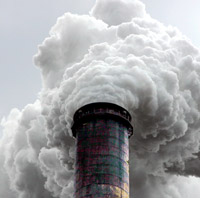 A day after returning home from United Nations Framework on Convention on Climate Change (UNFCCC) negotiations in Durban, South Africa, Canadian Environment Minister Peter Kent announced: "We are invoking Canada's legal right to formally withdraw from Kyoto." Under the terms of the Kyoto Protocol countries must give one-year's notice to withdraw.
A day after returning home from United Nations Framework on Convention on Climate Change (UNFCCC) negotiations in Durban, South Africa, Canadian Environment Minister Peter Kent announced: "We are invoking Canada's legal right to formally withdraw from Kyoto." Under the terms of the Kyoto Protocol countries must give one-year's notice to withdraw.
The Kyoto Protocol was signed in 1997 in Kyoto Japan and came into force in 2005. Canada adopted Kyoto by a vote of the House of Commons in 2002. It is a sub-agreement, under UNFCCC, which was signed in 1992 at the Earth Summit and came into force in 1994. Canada remains a party to, and still has international legal obligation to the UNFCCC.
"I regret that Canada has announced it will withdraw and am surprised over its timing. Whether or not Canada is a Party to the Kyoto Protocol, it has a legal obligation under the [UNFCCC] Convention to reduce its emissions, and a moral obligation to itself and future generations to lead in the global effort," said UNFCCC Chief Christiana Figueres.
"Not only has Canada just ended our commitments under an international treaty, I believe we are in violation of domestic law," said Green Party of Canada Leader Elizabeth May, referring to the Kyoto Implementation Act, which remains law in Canada. May also added that to her knowledge, this is the first time in history that Canada has reneged on a ratified international treaty.
"It's a national disgrace. Prime Minister [Stephen] Harper just spat in the faces of people around the world for whom climate change is increasingly a life-and-death issue," said Graham Saul of Climate Action Network Canada.
"Withdrawing from the Kyoto Protocol is a reckless and totally irresponsible act," said Ian Fry, lead negotiator for the tiny South Pacific island nation of Tuvalu who faces severe risks from rising sea levels caused by climate change, adding "For a vulnerable country like Tuvalu, its an act of sabotage on our future."
"It is regrettable and flies in the face of the efforts of the international community for Canada to leave the Kyoto Protocol at a time when the Durban meeting, as everyone knows, made important progress by securing a second phase of commitment to the Protocol," said China's Foreign Ministry spokesman Liu Weimin.
German Environment Minister Norbert Röttgen called Canada's announcement "unnecessary and in that respect very unpleasant."
A spokesperson for France's foreign ministry said the decision is "bad news for the fight against climate change,
An official in India said Canada's decision could jeopardise any gains made at the Durban meeting.
Even Japan, who like Canada and Russia was unwilling to sign up for a second commitment period under the Kyoto Protocol at climate negotiations, urged Canada to stay with the Kyoto framework.
View December 16, 2011 CTV News article
View December 14, 2011 Spiegel International article
View December 13, 2011 CBC article
Watch December 13, 2011 CBC interview with Elizabeth May 
View December 13, 2011 Reuters article
View December 13, 2011 David Suzuki Foundation blog post
View December 13, 2011 ABC News article
View December 13, 2011 United Nations Framework Convention on Climate Change release
View December 12, 2011 Sierra Club of Canada press release
View December 12, 2011 The Globe and Mail article
View December 12, 2011 Washington Post article
View Kyoto Protocol Implementation Act
Sources: CBC, CTV, United Nations
 After two weeks of negotiations in Durban, South Africa, at the 17th Conference of Parties (COP 17) under the United Nations framework convention on climate change
(UNFCCC) talks went into the night for text to be presented on Saturday, December 10, 2011. The Kyoto Protocol first reporting period ends in 2012, with civil society and southern/undeveloped countries seeking to extend the Protocol or/and replace it with a new binding and fair agreement.
After two weeks of negotiations in Durban, South Africa, at the 17th Conference of Parties (COP 17) under the United Nations framework convention on climate change
(UNFCCC) talks went into the night for text to be presented on Saturday, December 10, 2011. The Kyoto Protocol first reporting period ends in 2012, with civil society and southern/undeveloped countries seeking to extend the Protocol or/and replace it with a new binding and fair agreement.
It is widely reported that Canada will pull out of the Kyoto treaty before the end of 2012, and South Africa's high commissioner to Canada has accused Canada of "bullying" developing nations to pull out of the Kyoto Protocol.
"Kyoto, for Canada, is in the past," Canadian Environment Minister Peter Kent told COP 17, as six members of the Canadian Youth Delegation stood as Kent began his speech and turned their backs, revealing the message "Turn Your back on Canada" on their T-shirts.
Neither India nor China is in the annex under the first commitment phase of the Kyoto Protocol, as they are as developing countries under Kyoto. But rapid industrial development in both countries has made China and India the world's first and third largest emitters.
Canada, Japan and Russia, have refused to take on new targets under the Kyoto Protocol after the existing commitment period. They insist any new agreement needs to include greenhouse gas (GHG) emissions from developing countries like China and India. The United States, which signed but never ratified Kyoto, also supports this position.
India wants a second commitment period for the Kyoto Protocol, provided it respected India's need to ensure development for its people, and eradicate poverty. China indicated it is prepared to enter into a binding deal to reduce emissions, but said it expects developed countries to take on a new round of targets following the end of the Kyoto agreement's first commitment period.
"What is frustrating me and my delegation here ...is to see for the third time that this UN conference is hijacked by a Ping-Pong game between the United States and China," said Jo Leinen, chairman of the European Parliament's environment committee.
Youth delegations have been active and visible throughout the two weeks in Durban.
View December 7, 2011 Reuters article
View December 7, 2011 CBC News article
View December 7, 2011 Postmedia News article
View December 7, 2011 Globe and Mail article
View December 7, 2011 India Economic Times article
View December 7, 2011 Canada's national statement at COP17, Durban, South Africa
View December 3, 2011 Montreal Gazette article
Source: Reuters, CBC, Postmedia
Kristin Palitza, News Report: Chanting slogans and signing protest songs, a large throng of demonstrators walked from Durban's city centre to the entrance of the International Convention Centre where the climate change summit is being held, to hand over a list of their demands to Christiana Figueres, executive secretary of the United Nations Framework Convention on Climate Change (UNFCCC).
Civil society requested that governments meet various targets by the end of the conference on Dec. 9, including ensuring a peak in global greenhouse gas emissions by 2015, and that the Kyoto Protocol continues and provides a mandate for a comprehensive, legally binding instrument.
Source: Nation of Change
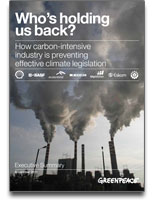 A Greenpeace International report, Who's holding us back? How carbon-intensive industry is preventing effective climate change legislation, released November 23, 2011, hopes to influence climate change negotiations in Durban November 28 — December 9, 2011.
A Greenpeace International report, Who's holding us back? How carbon-intensive industry is preventing effective climate change legislation, released November 23, 2011, hopes to influence climate change negotiations in Durban November 28 — December 9, 2011.
“Greenpeace calls on the politicians who hold the fate of our economy and environment in their hands in Durban to listen to the people instead of polluting corporations like Shell, Eskom and Koch Industries.” said Kumi Naidoo, Executive Director Greenpeace International.
The report demonstrate that decisive action on the climate is being ousted from the political agenda, as businesses that contribute the most to climate change emissions, and who are profiting from these activities, work to defeat progressive legislation on climate change and energy around the world.
The report reveals, using clear case studies, how a handful of major polluting corporations such as Eskom, BASF, ArcelorMittal, BHP Billiton, Shell and Koch Industries, as well as oil industry associations, influence governments and the political process on climate legislation.
The report says Ottawa and Alberta have been partners in a taxpayer-funded "advocacy strategy" led by Canada's Foreign Affairs Department to fight climate-change policies and "pro-mote the interests of oil companies."
Canada, along with Japan and Russia, have indicated they plan to walk away from any climate deal that sets greenhouse gas emission reduction targets for developed nations between 2008 and 2012.
View November 23, 2011 Greenpeace International report
View November 23, 2011 Vancouver Sun coverage
View November 23, 2011 Climate and Capitalism coverage
Source: Greenpeace International
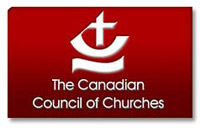 At an historic meeting in Ottawa, October 23rd and 24th, faith leaders, politicians and members of the public gathered to engage in a dialogue about climate change. Participants discussed climate change as the root of a spiritual crisis, the values necessary for a sustainable economy, and the challenge of climate justice.
At an historic meeting in Ottawa, October 23rd and 24th, faith leaders, politicians and members of the public gathered to engage in a dialogue about climate change. Participants discussed climate change as the root of a spiritual crisis, the values necessary for a sustainable economy, and the challenge of climate justice.
A joint statement "Canadian Interfaith Call for Leadership and Action on Climate Change" was developed in advance of the 17th Conference of the Parties to the UN Framework Convention on Climate Change, to be held in Durban, South Africa, November 29th to December 9, 2011.
"We call for leadership to put the long-term interest of humanity and the planet ahead of short-term economic and national concerns. The teachings of our faiths tell us that the best interests of one group or nation are served by pursuing the best interests of all people. There is one human family and one Earth that is our common homeland. Climate change is a global crisis and requires global solutions that put the well-being of all people first - especially the most vulnerable," reads the joint statement signed by nearly 30 religious leaders and representatives of faith based organizations across Canada.
View October 25, 2011 Canadian Interfaith joint statement (PDF)
View October 25, 2011 Council of Canadian Churches press release
View October 25, 2011 Citizens for Public Justice article (PDF)
View November 4, 2011 North American Interfaith Network article
View November 7, 2011 Embassy Magazine article
Source:
Council of Canadian Churches
 Despite the global economic crisis, the world's largest investors urged governments and international policy makers to take new and meaningful steps in the fight against climate change.
Despite the global economic crisis, the world's largest investors urged governments and international policy makers to take new and meaningful steps in the fight against climate change.
In a joint statement, the group of 285 investors representing more than $20 trillion in assets, stressed the urgent need for policy action which stimulates private sector investment into climate change solutions, creates jobs, and is essential for long-term sustainability and stability of the world economic system.
Investor support for climate action has more than doubled since November 2008, when 150 investors with $9 trillion in assets first came together to urge government leaders to act on climate change.
Coordinated by three leading investor groups on climate change, alongside the United Nations Environment Programme Finance Initiative (UNEP FI), and the Advisory Council of the Principles for Responsible Investment (PRI), the statement represents the largest ever grouping, by both number of signatories and assets, to call for policy action on climate change.
The statement is supported by the findings of a report commissioned by the three investor groups and UNEP FI. This report underscores investment-grade policy which will enable institutional investors to allocate capital towards climate change solutions. Contained within the report are case studies on the climate policies of six major emitters and further examples of investment-grade policy for national governments and negotiators considering future policy initiatives.
View CERES press release, report, and statement
|

 2002-2014
2002-2014

 2002-2014
2002-2014